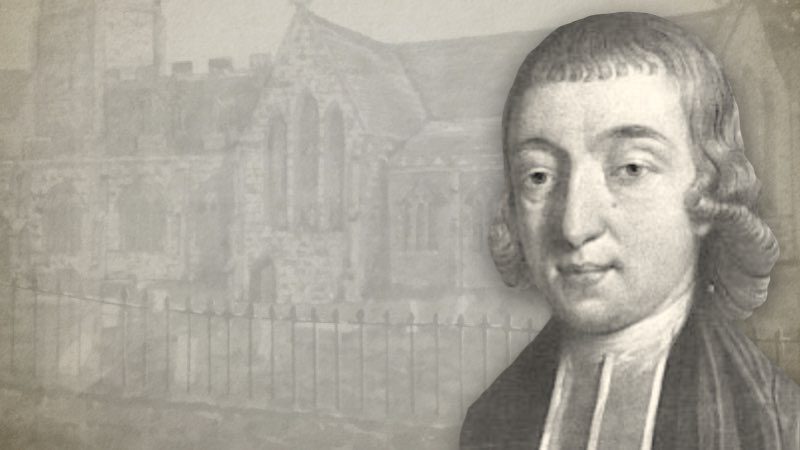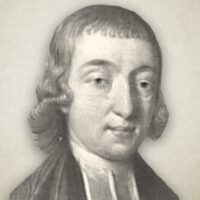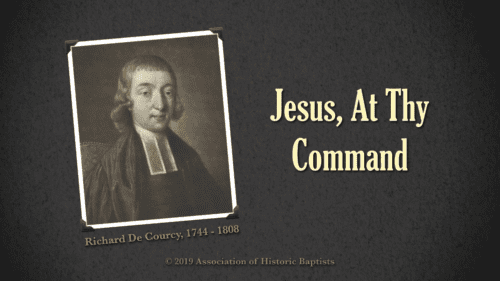
The Life And Ministry Of Richard De Courcy
John Gadsby, “Memoirs Of The Principal Hymn-Writers And Compilers Of The 17th, 18th and 19th Centuries”:
Richard De Courcy was born in Ireland in 1743 or 1744. He was educated at Trinity College, Dublin. As the Irish bishops would not ordain him, probably because of his Calvinistic sentiments, he left Ireland, and came to England, when he immediately waited upon Whitefield. On being introduced, Whitefield took off his cap, and, showing De Courcy a scar on his head, said, “I got this wound in your country for preaching Christ;” alluding to a time when he was once nearly stoned to death by the Papists. Through the influence of Lady Huntingdon, De Courcy was ordained by the Bishop of Lichfield, when he joined her ladyship, and preached in many of her chapels. Multitudes flocked to hear him, notwithstanding that the Arminians cautioned the people against him. At the commencement of his career, he met with a temptation common to young ministers: “I have been tempted,” said he, “strongly to believe that, after I had preached a few sermons, my strength would be quite exhausted, and that I should preach no more;” but he soon obtained relief on this head; for he afterwards adds, “With regard to my fears of being exhausted after a few sermons, the Lord has given me satisfaction in that particular; for he has discovered to me the super-excellency of that wonderful book, the Bible, above all other books; not only for its purity, but also for the variety of its matter. I find it a mine replete with the richest treasures and that the deeper I penetrate into it by faith and prayer, the greater riches are still discoverable. This book, he showed me, was to be the central point of all my divinity; and to be searched with unwearied diligence, if I meant to be a good householder, bringing out of my treasure things new and old.” He afterwards left Lady H., and joined Lady Glenorchy, in Edinburgh. In 1770, he obtained the curacy of Shawbury, near Hawkstone, in Shropshire, and remained there about four years; when he was appointed Vicar of Aldwinkle, Shrewsbury, by the Lord Chancellor, (Lord Dartmouth,) which caused a great commotion; and a gentleman in the parish wrote a satirical poem about him, entitled, “St. Alkmond’s Ghost;” but he was not to be frightened away by a ghost of that sort; but continued preaching “Salvation by free grace, through faith.” In 1770, while absent from his parish, many of his hearers went to hear the Baptist minister, and, finding more food for their souls, though De Courcy was a strong advocate for the doctrines of grace, did not return to the church. This caused De Courcy to publish “A Letter to a Baptist Minister,” on baptism, to which a reply was issued in a little tract, entitled, “Dipping versus Sprinkling; or, the Good Vicar in a Bad Mood. By John the Dipper.” This reply was said to have been written by Mr. B. Francis. De Courcy’s work. “Christ Crucified,” was written against the Socinian Dr. Priestley, and is still unanswerable. On the fast-day which was kept in 1803, De Courcy took a slight cold, which brought a return of his disorder in the chest. The following morning, being much worse, a physician was sent for. “I am almost spent,” said he; “it is a hard struggle, but it will soon be over. I shall not recover; but Christ is mine. He is my foundation; he is the Rock I build upon.” When the doctor had seen him, he immediately left the room for some medicine, when De Courcy exclaimed, “Thanks be to God for my salvation,” and immediately expired. This was Nov. 4th, 1803. He wrote a few poems; and it is believed that the hymn, “Jesus, at thy command,” was written by him on one occasion when Whitefield was about to leave for America, though some persons think it was written by Whitefield, and others by Toplady. It did not appear in De Courcy’s first edition, (1775,) but in a third edition, in which 203 hymns were added, most of them by other authors; and as Toplady published it in his Selection in 1776, before De Courcy issued his third edition, I incline to the opinion that it was not De Courcy’s, but Toplady’s. The Editor of the “Gospel Magazine” says of De C, “Gifted with all the graces of oratory, and with a mind stored with divine truth and experience, he boldly stood forward as a champion for the gospel, equipped with the sword of the Spirit and the word of God. He imitated the cherubim in the Garden of Eden, by turning the sword of the law every way, to prohibit the self-righteous from access to the tree of life on the footing of their own works. His weapon was defensive and offensive, for he assaulted error and defended truth.”
Richard De Courcy (1743-1803) was an Anglican sovereign grace preacher and hymn-writer. His gospel labours grew after meeting George Whitefield and receiving an invitation from Lady Huntingdon to fill the pulpits in her chapels. He attracted large crowds, often provoking the Arminians by his forceful proclamations of sovereign grace, incurring their slur and slander. In 1774, he was appointed Vicar of St. Alkmond's, Shrewsbury, a position he held until his death twenty-nine years later.




